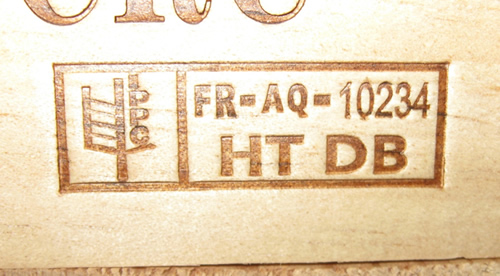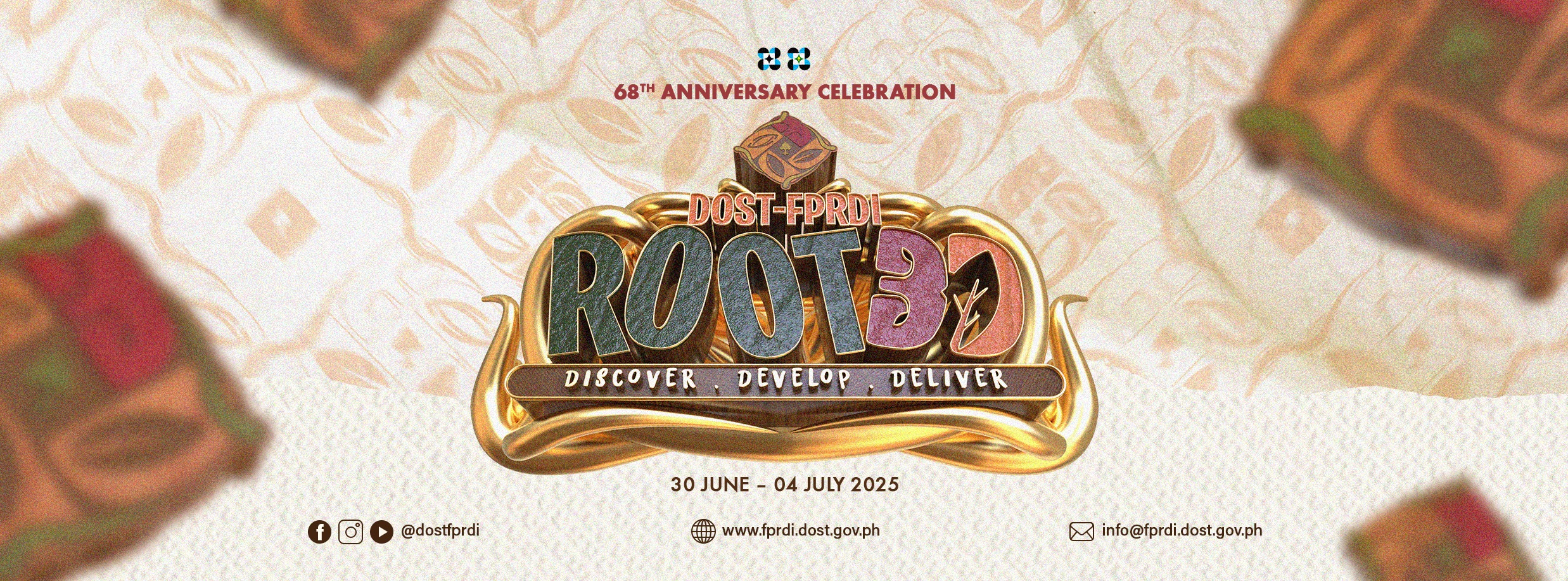Pallet-maker adopts DOST-FPRDI heat treatment system
September 30, 2016

|
| The International Plant Protection Council (IPPC) seal is stamped only on wooden packaging materials that have received proper heat or methyl bromide treatment to kill all harmful insects and disease-causing organisms. DOST-FPRDI’s low-cost heat treatment facility (LHTF) brings Suri Pallets, Inc. a step closer to making wooden pallets that conform to IPPC requirements. (photo by User: RhinoKitty) |
A pallet-maker in Cabuyao, Laguna was able to save at least 100,00 board feet of lumber from sure decay, thanks to the help of DOST-FPRDI.
In 2011, Suri Pallets, Inc. installed a lumber dryer designed by a private company. The dryer, however, failed to work properly, leaving the company unable to dry its growing supply of stock lumber.
The management then asked DOST-FPRDI to help and in April 2015, the Institute reconstructed the dryer using the design of its low-cost heat treatment facility (LHTF).
Following the reconstruction, Suri Pallets was finally able to dry all its stock lumber. According to company manager Paul Vergara, the facility brought the company a step closer to its goal of producing export-quality wooden pallets. It also increased their production capacity – from 100 to 500 pallets per day.
Wooden pallets are a type of wood packaging material (WPM) often used in shipping goods around the world. The International Plant Protection Council (IPPC) requires that all such materials made of raw wood undergo either heat treatment (HT) or methyl bromide (MB) fumigation to make sure that they do not spread insect pests and diseases across borders.
According to DOST-FPRDI’s Ms. Wency H. Carmelo, “HT involves heating the pallet blocks’ wooden core at 56o C for at least 30 minutes. Compared to MB fumigation, it is a safe and cheaper way to get the IPPC approval for wooden pallets. High amounts of MB have been documented to cause human deaths and very damaging to the ozone layer while HT does no harm to the environment. Also, according to a DOST-FPRDI study, it is 46 percent cheaper than MB treatment.” (Rizalina K. Araral, 26 September 2016)#











